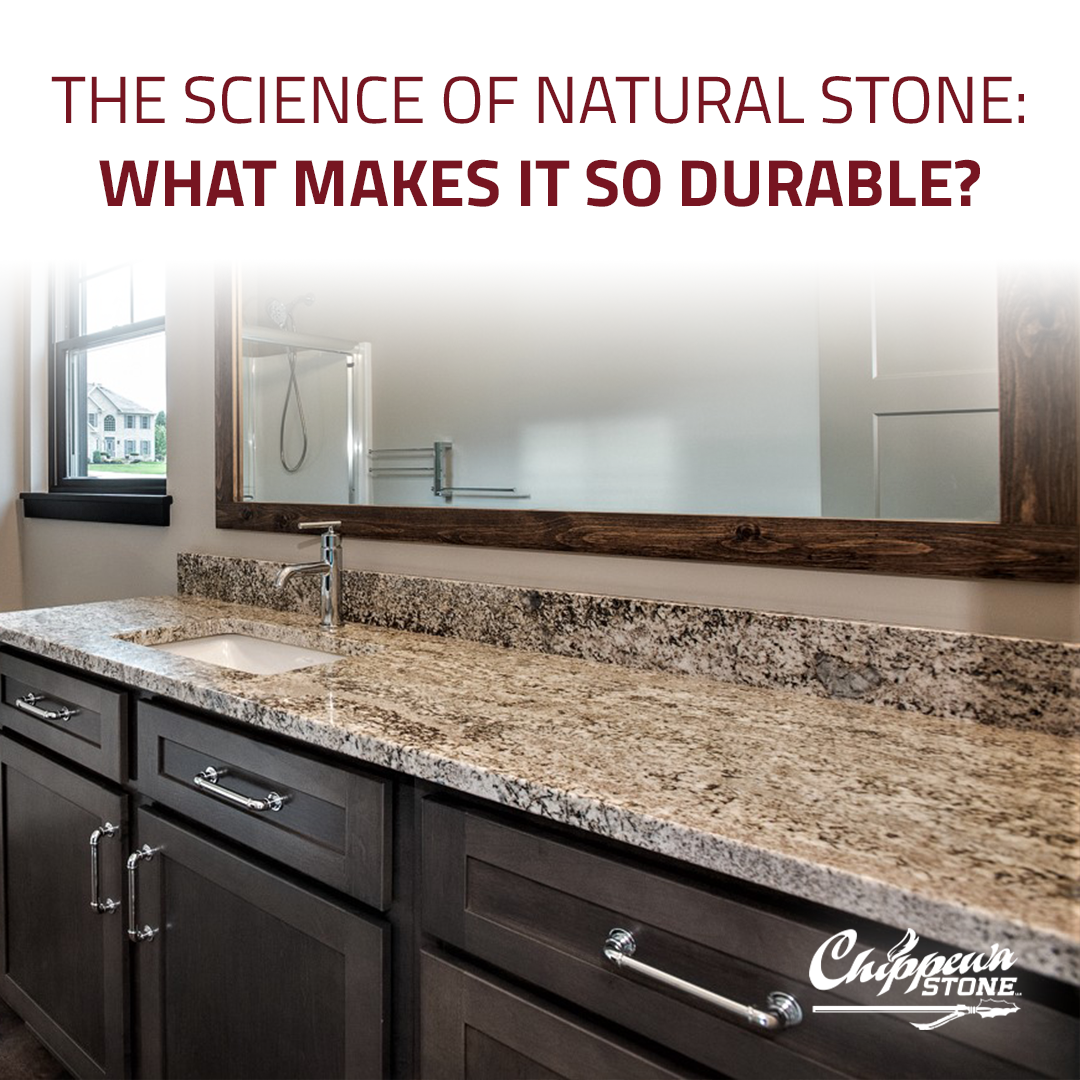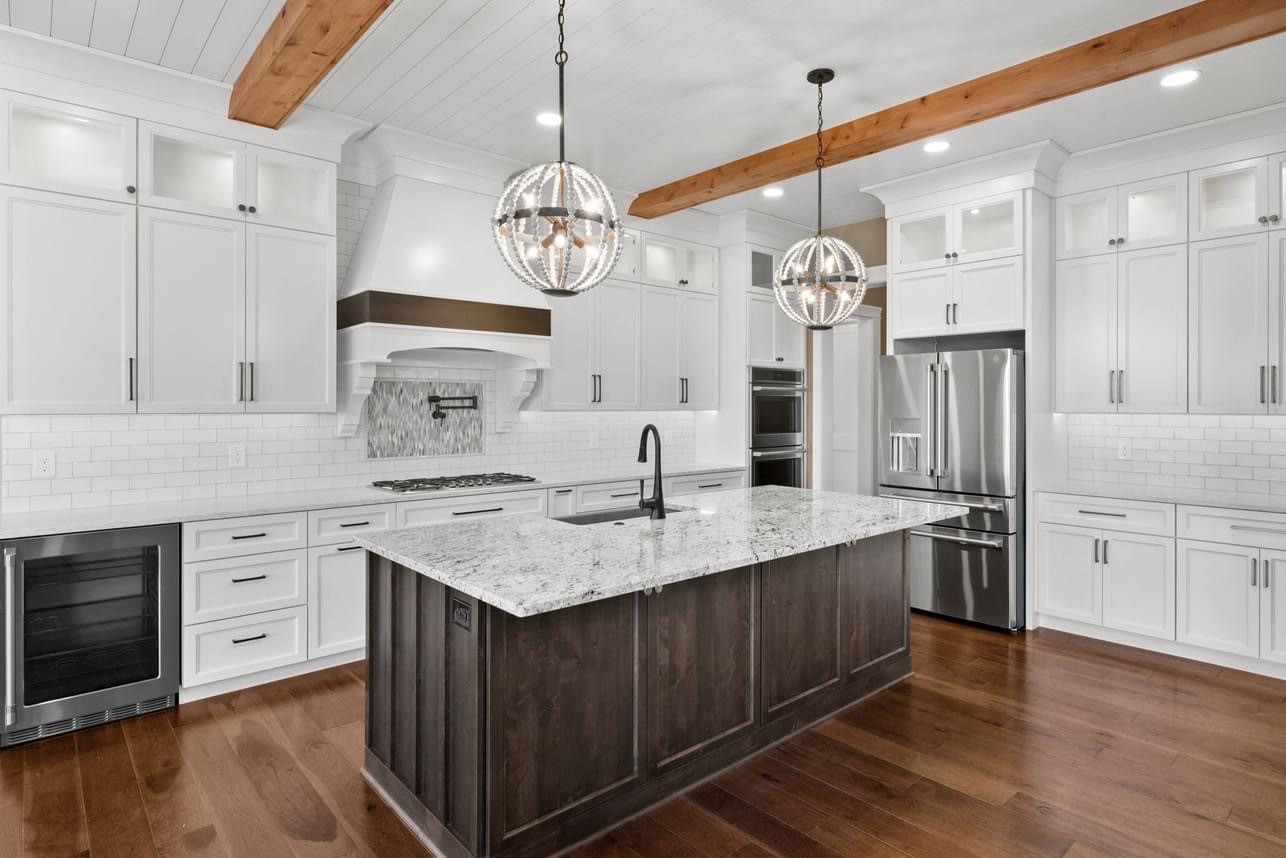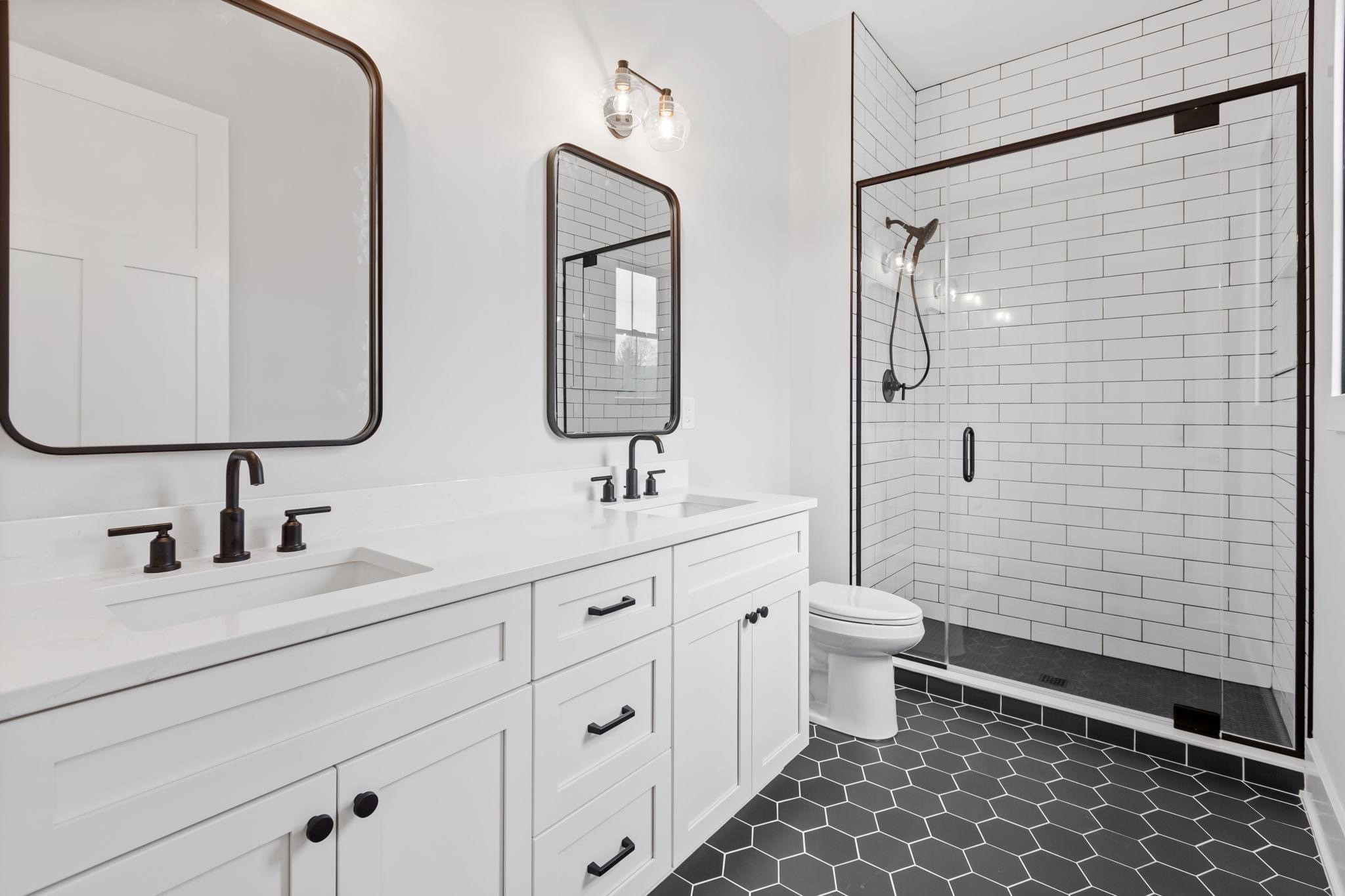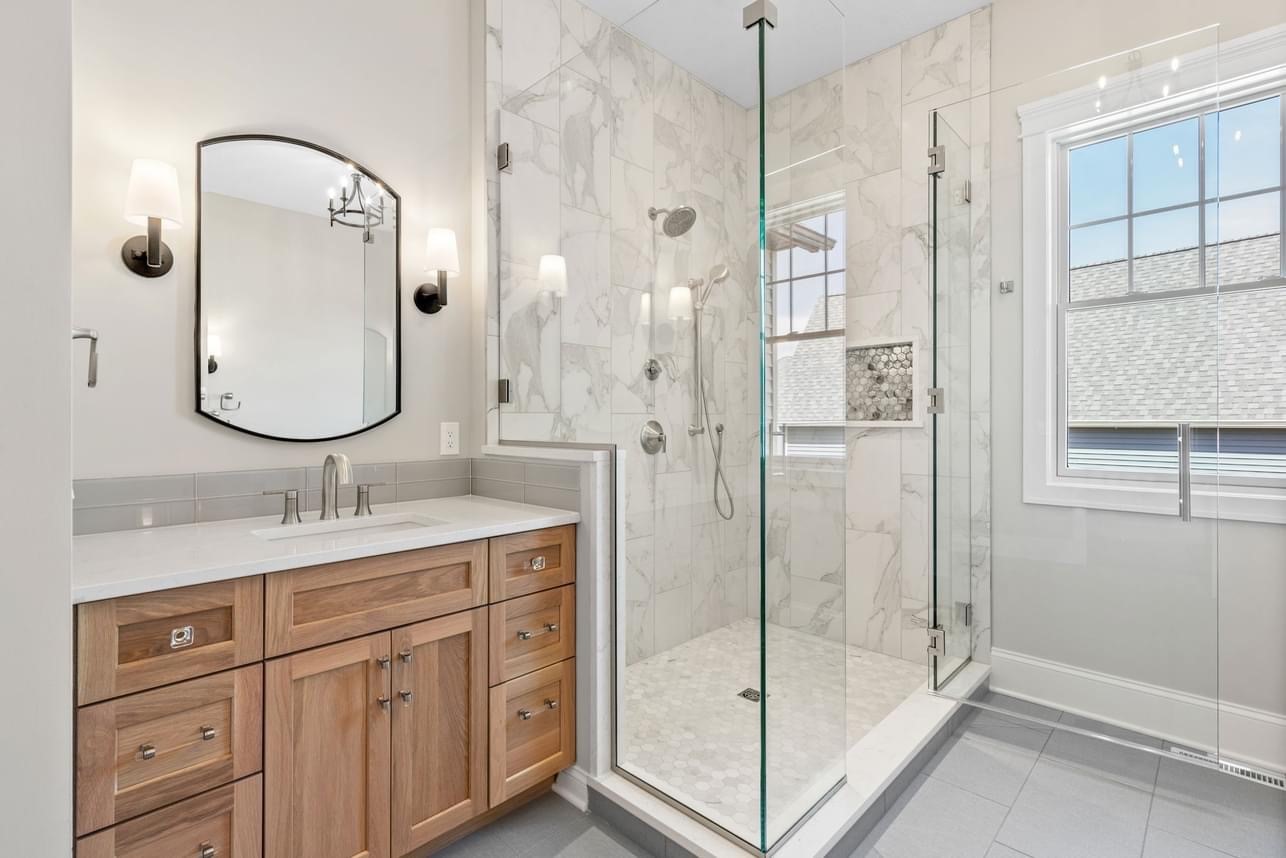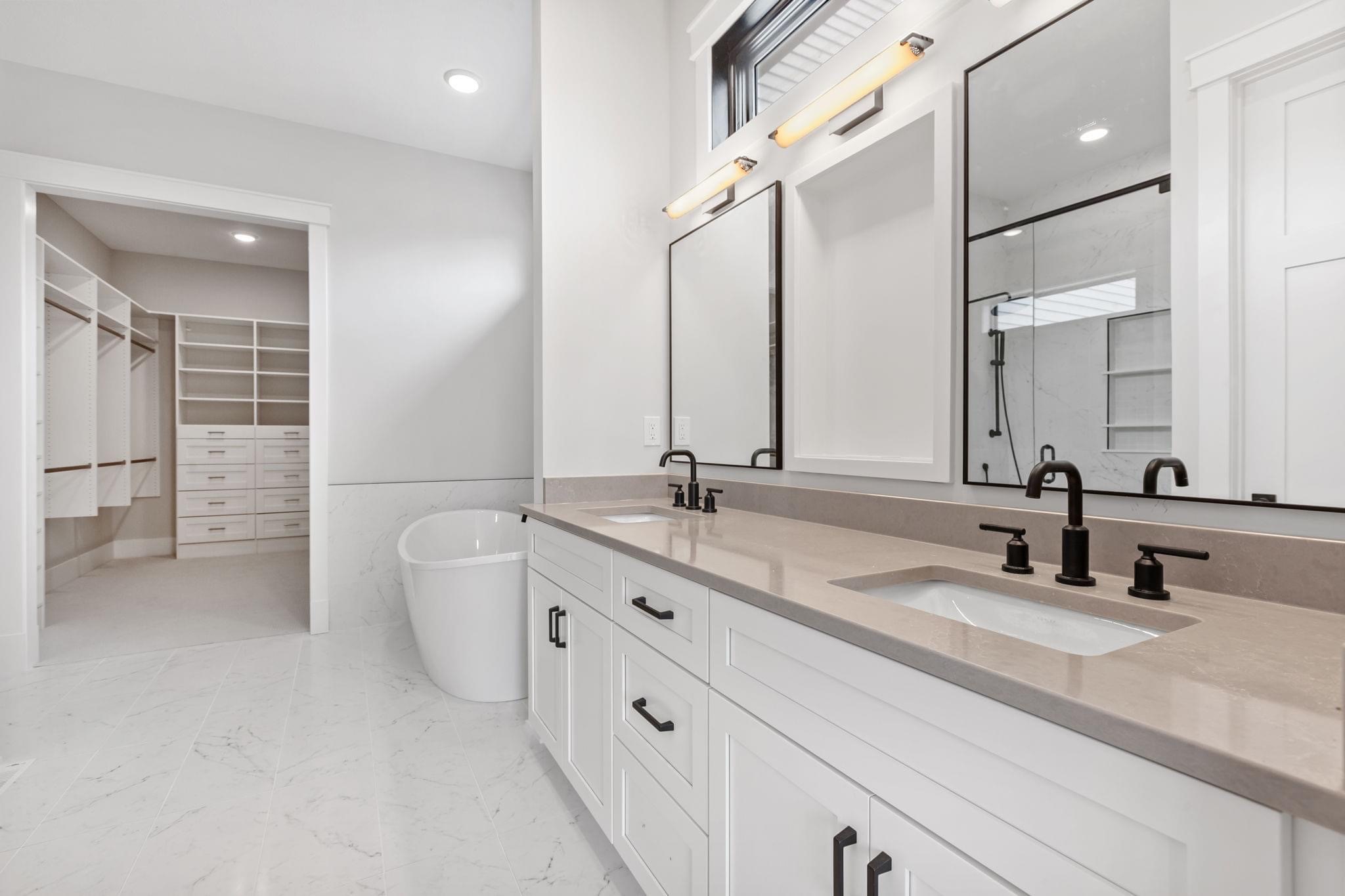Natural stone has been a trusted building material for centuries. From the ancient pyramids of Egypt to modern skyscrapers, its durability and timeless beauty have made it a top choice for architects and homeowners alike. But what exactly makes natural stone so resilient? The answer lies in its scientific composition and formation process. In this article, we’ll explore the geology behind natural stone’s strength, examine the unique properties of popular stones like granite, marble, quartzite, dolomite, and soapstone, and discuss why these characteristics make them ideal for home design.
Geological Composition: The Building Blocks of Strength
Natural stone’s remarkable durability starts with its geological composition. Each stone type has a unique blend of minerals, influencing its hardness, density, and overall resilience. These minerals are formed over millions of years under extreme conditions, creating robust structures that withstand daily wear and tear. Understanding the makeup of each stone helps homeowners choose the best material for their specific needs.
Natural stone is formed over millions of years through various geological processes. Its durability can be traced to its mineral composition and formation environment. Each type of stone has a unique blend of minerals that contribute to its strength and resistance to wear and tear.
Granite: The Power of Quartz and Feldspar
Granite is one of the hardest natural stones, primarily composed of quartz and feldspar, with small amounts of mica and other minerals. Quartz, one of the hardest minerals on Earth, gives granite its scratch resistance and overall strength. Feldspar contributes to its resistance to weathering and chemical reactions, making granite ideal for outdoor and high-traffic areas.
Marble: Metamorphic Marvel
Marble is formed from limestone subjected to intense heat and pressure, causing it to recrystallize into a denser rock. This process gives marble its characteristic veining and unique appearance. While it’s softer than granite, its compact crystalline structure provides good durability when properly sealed and maintained.
Quartzite: Tougher Than It Looks
Quartzite is created when sandstone is subjected to high heat and pressure, fusing the quartz grains into an interlocking crystalline structure. This process makes quartzite even harder than granite, with remarkable resistance to scratching and etching. Its glassy appearance and durability make it a popular choice for countertops.
Dolomite: The Balanced Stone
Dolomite is a sedimentary rock composed mainly of calcium magnesium carbonate. It is slightly harder than marble but softer than granite. Its balanced composition makes it resistant to scratching and etching while maintaining a softer, more subtle appearance.
Soapstone: Soft but Strong
Soapstone is primarily composed of talc, giving it a softer feel compared to other stones. However, its dense structure makes it highly resistant to heat and stains. Its unique ability to patina over time adds character, making it a favorite for rustic and vintage designs.
Formation Processes: Nature’s Artistry
The journey of natural stone from the earth’s crust to your kitchen countertop is nothing short of extraordinary. These stones are forged through three primary geological processes: igneous, metamorphic, and sedimentary. Each process contributes to the stone‘s unique texture, strength, and appearance.
- Igneous Rocks: These rocks form from cooled magma or lava. Granite, for instance, is an igneous rock known for its tightly interlocked mineral grains, which contribute to its incredible hardness and scratch resistance. The slow cooling process allows large crystals to form, giving granite its signature speckled appearance.
- Metamorphic Rocks: Created when existing rocks are subjected to extreme heat and pressure within the Earth’s crust, metamorphic rocks undergo a transformation that increases their density and durability. Marble and quartzite are prime examples. Marble’s characteristic veining results from mineral impurities, while quartzite‘s interlocking crystalline structure makes it harder than granite.
- Sedimentary Rocks: Formed by the accumulation of mineral and organic particles, sedimentary rocks are typically layered and compacted over time. Dolomite is a sedimentary rock known for its balanced hardness and subtle appearance. Although softer than granite or quartzite, its unique composition makes it more resistant to etching than marble. The durability of natural stone is also influenced by its formation process. Igneous, metamorphic, and sedimentary processes contribute to each stone’s unique properties.
Unique Properties That Enhance Durability
Natural stone is not just visually stunning; its unique physical properties contribute to its long-lasting durability:
- Hardness and Scratch Resistance: The hardness of a stone is measured on the Mohs scale, where minerals like quartz rank high. Granite and quartzite are incredibly hard, making them highly resistant to scratches from knives, pots, and daily use.
- Porosity and Density: Stones with lower porosity, such as granite and quartzite, are more resistant to stains and moisture damage. Sealing marble and dolomite enhances their resistance to liquid penetration, preserving their beauty over time.
- Heat Resistance: Natural stones like soapstone and granite are formed under intense heat, making them highly resistant to high temperatures. This property is particularly beneficial for kitchen countertops and fireplaces.
- Impact Resistance and Flexural Strength: The ability to withstand impact and flex without cracking is crucial for countertops. Quartzite and granite excel in this regard due to their dense, interlocking mineral structures.
- Weather Resistance: Outdoor applications require stones that can endure harsh weather conditions. Granite’s resistance to UV radiation and moisture makes it ideal for patios and outdoor kitchens. The inherent properties of natural stone contribute to its long-lasting appeal.
Practical Benefits for Homeowners
Choosing natural stone isn’t just about aesthetics – it’s an investment in durability and functionality. The scientific properties of these stones offer a range of practical benefits, including:
- Longevity and Value: Natural stone surfaces can last for decades, even centuries, with proper care. Their timeless appeal enhances property value and reduces the need for frequent replacements, saving money in the long run.
- Low Maintenance: Thanks to their hardness and resistance to stains and scratches, natural stone countertops require minimal upkeep. Regular sealing and simple cleaning routines keep them looking pristine.
- Hygiene and Safety: Non-porous stones like quartzite and properly sealed granite are resistant to bacteria and mold, ensuring a hygienic surface for kitchens and bathrooms.
- Environmental Sustainability: Natural stone is an eco-friendly option. It is sustainably sourced and requires less energy for production compared to synthetic materials. Its longevity also reduces waste over time.
- Versatility in Design: Available in a variety of colors, patterns, and finishes, natural stone complements both traditional and contemporary design styles. It can be used for countertops, backsplashes, fireplaces, and outdoor patios, offering unmatched versatility.
Why Choose Chippewa Stone?
At Chippewa Stone, we know that natural stone’s durability isn’t just about looks—it’s backed by science. Our extensive selection of granite, marble, quartzite, dolomite, and soapstone combines strength, beauty, and practicality. Whether you’re upgrading your kitchen, bathroom, or outdoor area, our team is here to help you find the ideal stone for your project.
In Summary
Natural stone’s remarkable durability comes from millions of years of geological processes and unique mineral compositions. Each type of stone—whether it’s the toughness of quartzite or the heat resistance of soapstone—offers unique benefits that suit a variety of design needs. Knowing the science behind its durability helps homeowners make confident decisions that enhance both the beauty and functionality of their spaces.
At Chippewa Stone, we take pride in offering top-quality natural stones tailored to your specific needs. Our vast collection of granite, marble, quartzite, dolomite, and soapstone guarantees you’ll find the perfect match for your vision. Our experts are ready to guide you through the process, helping you bring your ideas to life.
Ready to add timeless elegance and enduring strength to your home? Contact Chippewa Stone today and discover how natural stone can transform your space.

